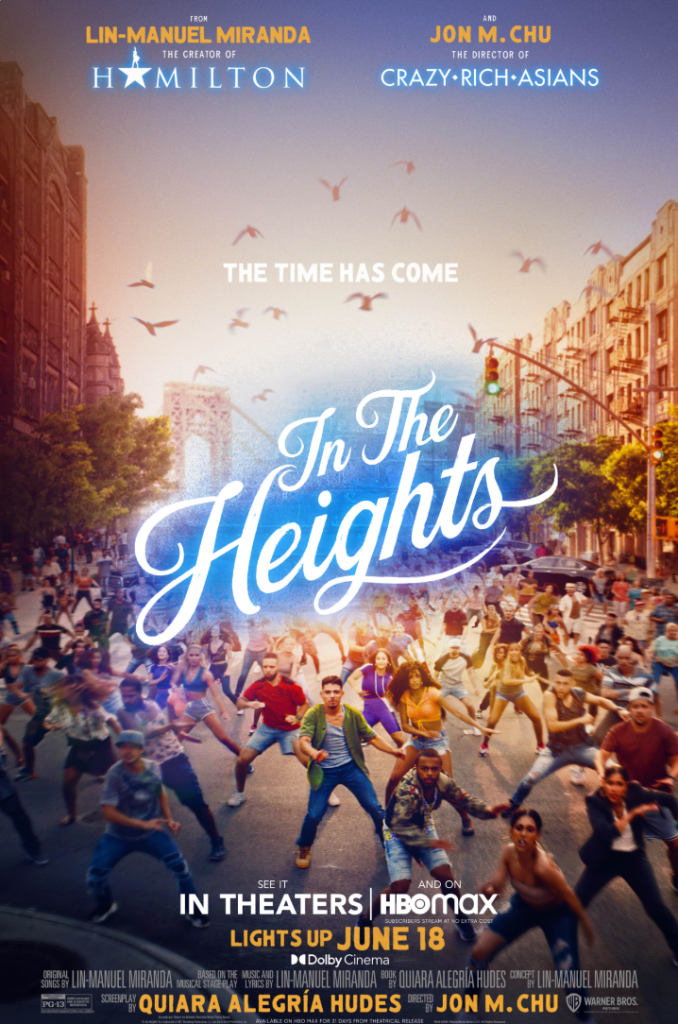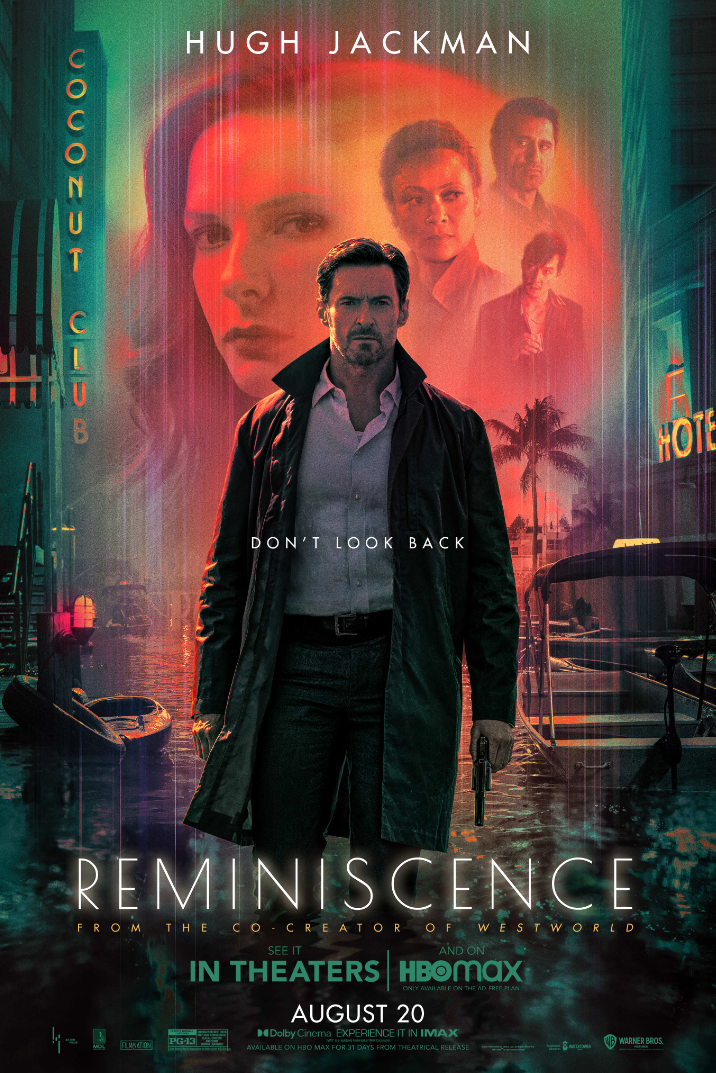Warner Bros. was founded by four Polish immigrant brothers as a movie theater business in the early 1900s, and in 1923 formed into a film production studio. In April 2022, WarnerMedia merged with Discovery, Inc. to form Warner Bros. Discovery. Some of the studio’s most famous films include Casablanca, A Clockwork Orange, Goodfellas, the blockbuster Harry Potter franchise, and multiple DC Comics adaptations.
In one of Warner Bros.’ most memorable films, Rebel Without a Cause (1955), Sal Mineo played the tragic character Plato, one of film’s earliest notable gay-coded characters. Other LGBTQ-inclusive Warner Bros.’ films from the twentieth century include Dog Day Afternoon (1975), The Color Purple (1985), Interview with the Vampire (1994), and Midnight in the Garden of Good and Evil (1997), nearly all of which were based on external source material that included LGBTQ characters. More recent LGBTQ-inclusive films include Alexander (2004), Kiss Kiss Bang Bang (2005), V For Vendetta (2005), and J. Edgar (2011), Tammy (2014), Storks (2016), Crazy Rich Asians (2018), Isn’t It Romantic (2019), and Birds of Prey (2020).
In the Heights
Widest Theatrical Release: 3,509 theaters
Vito Russo Test: Pass
In the film adaptation of the Tony Award-winning musical set in Washington Heights, Daniela and Carla, two characters from the play who work in the hair salon, are shown as a couple. They wake up in bed together, repeatedly display physical affection, and call each other pet names. This small change from the stage musical signals that the community in the film is an LGBTQ-inclusive one and that Daniela and Carla – two queer women – are integral to that community. As more adaptations make it to the big screen, studios should take note that there is an opportunity to expand upon the stories of characters that may not have been fully explored in the source material.
The Matrix Resurrections
Widest Theatrical Release: 3,552 Theaters
Vito Russo test: Fail
The Matrix films have long been regarded as a trans allegory, and the newest addition from trans filmmaker Lana Wachowski, recognizes this sentiment. Resurrections comments on this in a scene where people discuss a fictional version of The Matrix, and one character theorizes that it’s about trans politics. Though the film features this symbolism, and the cast includes trans actor Leo Sheng, there are no explicitly trans characters featured in the film. There are also a few hints of queerness: an embrace between characters Freya and Niobe, and one between characters Lex and Bugs. While both could possibly be read as confirmation of their respective relationships, ultimately there was not enough material given for them to be read as explicitly romantic gestures. At one point, the character Berg mentions that Neo’s look “totally works for [me]” which could be read as either a confirmation of his sexuality or simply him admiring Neo’s new aesthetic. Ultimately, the content was not enough for GLAAD to count any LGBTQ characters in this film as part of its tally.
 Reminiscence
Reminiscence
Widest Theatrical Release: 3,652 theaters
Vito Russo Test: Fail
This science fiction film is based around a machine that can show people their memories and let them relive those precious moments. During a montage that introduces the technology in the beginning of the film, there is a brief moment where the voiceover says, “who wouldn’t want to be reunited with a loved one?” Onscreen, a man in the machine relives tender romantic moments with another man. The scene is only a few seconds long, a clear case of “blink-and-you’ll-miss-it” representation, and their five second appearance adds nothing of substance to the film.
The Suicide Squad
Widest Theatrical Release: 4,019
Vito Russo Test: Fail
The Suicide Squad is the next entry in the DC Extended Universe and features multiple characters who are confirmed as queer in other franchises. While previous films and series have included bi identities for Harley Quinn and Peacemaker, both members of the main ensemble of The Suicide Squad, their sexualities are not discussed here. Harley’s only relationship shown on screen is with a man, and Peacemaker’s bisexuality was only confirmed in a separate series months after this film was released. Watching The Suicide Squad with no external context, no LGBTQ characters are specifically seen as such on screen. GLAAD urges further DC films to follow the lead of their television and comic book counterparts, where several leading characters are unambiguously portrayed as queer.
CORPORATE ACTIONS
WarnerMedia was owned by parent company AT&T through mid-2022, and subsequently was acquired by Discovery Inc. Going forward, they will be evaluated as Warner Bros. Discovery and will move forward as a part of that company. Though the company is under new leadership today, our report will focus solely on the information from the 2021 calendar year, under AT&T’s ownership.
AT&T has previously signed on to briefs sent to the Supreme Court in support of LGBTQ equal rights and has donated to LGBTQ groups, most significantly supporting The Trevor Project’s work. In 2020, WarnerMedia joined over 250 other businesses that signed onto HRC’s and Freedom For All American’s Business Statement Opposing Anti-LGBTQ State Legislation. AT&T joined the coalition of Businesses in favor of passing the Equality Act. In 2021, AT&T received a top score of 100 on the Human Rights Campaign Foundation’s Corporate Equality Index for inclusive benefits, healthcare, workplace protection policies, and having an active LGBTQ employee resource group. The company also has a supplier diversity program to evaluate the vendors the company does business with. WarnerMedia launched a production diversity policy in 2018 which includes an annual report on DEI efforts by the company and has run talent programs to help underrepresented directors and writers enter the industry pipeline for several years. WarnerMedia financially supported LGBTQ events and organizations, including GLAAD, in 2021. In 2021, no anti-LGBTQ political donations were found by WarnerMedia. Parent company AT&T donated hundreds of thousands of dollars to anti-LGBTQ politicians.
Warner Bros. has continued and expanded their working relationship with anti-trans activist and Harry Potter author JK Rowling with the Fantastic Beasts franchise and Harry Potter video games. This year a spokesperson noted they are “proud to be the studio to bring her vision, characters, and stories to life now – and for decades to come.” As Rowling continues to incite hate and misinformation about transgender people through op-eds, interviews, and social media – recent bill proposals have quoted her directly – the studios’ continued support and validation of her is particularly dangerous and irresponsible.
OPPORTUNITIES AHEAD
Warner Bros. is releasing a musical adaptation of the Broadway show The Color Purple. Though the previous film adaptation erased the queerness of main character Celie, the musical features her romance with Shug Avery, and the new adaption should as well. Additionally, the sequel to Crazy Rich Asians remains in development, as well as an announced spinoff film, and these projects will hopefully include gay character Oliver from the original film and give him a larger storyline.
There are several upcoming films slated within the DC Universe for Warner Bros. Two of their most popular characters, Harley Quinn and Wonder Woman, are bisexual in the comics, though that representation has yet to be fully translated onscreen (though Harley’s bisexuality was briefly referenced in 2020’s Birds of Prey).
This spring, Warner Bros. released Fantastic Beasts: The Secrets of Dumbledore, the latest iteration of the Harry Potter franchise. Though waves of press reported ahead of release that there would be confirmation that Dumbledore is gay, the moment itself turned out to be insignificant and was ultimately banned in several countries. Furthermore, the larger issue remains that the Harry Potter franchise continues to financially benefit JK Rowling, whose ongoing hateful and incorrect comments about the transgender community are dangerous and harmful. Any connection to Rowling actively harms the LGBTQ community, despite any small moments of inclusion in the film itself.
GLAAD previously spoke about the inclusion of trans character Alysia Yeoh in the upcoming Batgirl, though the film was shockingly canceled this summer and will not be released though filming had completed. Horror comedy The Parenting, which centers on a gay couple meeting each other’s parents, will be released on HBO Max as opposed to a Warner Bros. theatrical release. Camp, following a romance at a queer teen summer camp and directed by Billy Porter, will also get an HBO Max release.


 Reminiscence
Reminiscence










